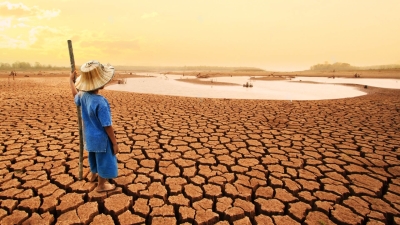Extreme Temperatures Reach Unprecedented Levels, The Worst Is Yet to Come
Wegdan Mohammed

Over the past decades, the United Nations and various international organizations have been warning about the dangers of climate change. Numerous conferences, starting with the Earth Summit in Rio de Janeiro, Brazil, in 1992, and leading to Kyoto and Paris Agreements, as well as COP 27 held in Sharm El Sheikh last year, aimed to address this alarming issue.
However, these efforts have not been sufficient to combat the catastrophe, especially with major industrialized nations failing to commit to the warnings in pursuit of economic growth.
Consequently, the risks have escalated dramatically, and the situation is deteriorating day by day. The most evident repercussions we are experiencing now are the record-breaking extreme temperatures.
The consequences of a heatwave exacerbated by global warming have struck parts of Europe, Asia, and North America this month. Additionally, wildfires have ravaged areas in Canada, Southern Europe, and North Africa, a phenomenon that would have been practically impossible without climate change.
Indirect climate data, such as tree rings determining age, indicate that the temperatures recorded in July 2023 might be unparalleled in our history in the last few thousand years, according to UN Secretary-General António Guterres.
Simultaneously, the impact of "El Niño" phenomenon in the Pacific Ocean is intensifying. The World Meteorological Organization's scientists have revealed that there is a 90% probability of significant effects emerging in the latter half of this year, expected to affect weather patterns in various regions across the world in the coming years, starting from the upcoming winter.
The organization stated in an official statement earlier this month that the return of "El Niño" could greatly increase the likelihood of shattering temperature records and lead to more severe heatwaves in many parts of the globe.
In May of the previous year, the organization also predicted with a 98% certainty that at least one of the next five years would be the warmest ever, surpassing the record set in 2016 when the "El Niño" was exceptionally strong.
The report also mentioned a 66% probability that the global surface temperature average between 2023 and 2027 will exceed 1.5 degrees Celsius above pre-industrial levels for at least one year, a concerning scenario.
This places us in a significant predicament, as scientists fear that "El Niño" phenomenon could further support climate anomalies and exacerbate the severity, duration, and frequency of extreme weather events such as heatwaves and hurricanes.
Consequently, the world is now facing a critical moment that will determine the fate of the planet and the future of millions, if not billions, of people worldwide.









